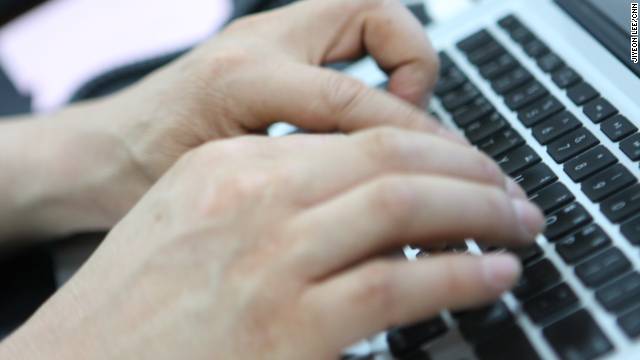- Back to Home »
- They're tracking me? Big deal

- Jack Cheng: I live my life in the open, I'm OK with websites and services tracking me
- Cheng: The revelation that the government has been snooping on calls is not a shocker
- He says while young people share everything, privacy is not dead; it's different
- Cheng: Privacy is contingent on what services we choose to use and how we use them
Editor's note: Jack Cheng is the author of "These Days," a novel about startups, modern relationships and the human side of technology.
(CNN) -- I live my life in the open: I'm easily googleable, emailable, and you can figure out from my Twitter and Instagram accounts what I've been doing. For a while my phone number was posted publicly on my Facebook profile.
I'm aware that these sites and services are tracking me. I know they're collecting my data, crunching it and selling it to advertisers, who in turn try to sell me things, and I am OK with this.
It's the cost of admission. These services help me stay connected with my friends and interact with strangers, and in turn I grant them permission to analyze my tweets and profile my Facebook interests for profit.
The revelation that the government is snooping on our communications in the interest of national security is nothing new. This latest incident doesn't come as a shocker.

You might guess that I reacted with mild surprise followed by general indifference, because young people are already sharing everything anyway. Besides, privacy is dead, right?
Privacy is not dead. The phone snooping is on a different level than that of companies selling my data to advertisers. Such behavior is unsettling, and is perhaps a true threat to privacy.
There are some in Silicon Valley who regard privacy as a relic of the past, something that falls off the back of the truck of progress as it rumbles into the future. It reminds me of sci-fi author Rudy Rucker's novel, "Postsingular," in which entrepreneurs unleash nanobots that virtually overnight blanket the earth and create an Internet-on-steroids instantly connecting everything on the planet, letting humans peer into any part of the world.
The novel is a thought experiment on the obliteration of privacy, and Rucker imagines dumpster-diving as routine — everyone can peer into the trash can at McDonald's and find discarded but perfectly edible griddle cakes. Crime basically disappears as everyone knows where everyone else is and what they are doing. Even clothing is a mere formality.
But even in the book there are blind spots, places the nanobots can't reach. In our real world, privacy isn't anywhere close to dead. Privacy today is just more nuanced and exists in different ways than 10, 50, 100 years ago.
It is not simply a matter of sharing more or less; not merely how much but in what way and with whom. Privacy is contingent on who we're trying to keep something private from -- family, friends, acquaintances, employers, strangers.
With more services and apps and greater degrees of control in which we can use them, we find ourselves having to make more decisions about where to draw the lines.
Friends of mine will untag themselves from Facebook photos to hide more unflattering images of themselves if they are "friends" with their employers. Some refrain from posting to Facebook things they don't want their parents to see, opting for Twitter instead, where their parents don't have accounts. Snapchat is built around a privacy-minded constraint: Mission Impossible-esque messages that self-destruct shortly after opening.
The nature of social media also makes room for subterfuge, and an illusory openness is another form of privacy. The Internet allows for masks, false identities and misrepresentation. It's prevalent enough in online dating, for instance, that MTV has a show devoted to it. There may be new spotlights illuminating our lives, but these lights also cast shadows, and these shadows become new places where we can hide ourselves from the world.
The kind privacy that is becoming more of the norm is dependent on our ability to move freely among the myriad services and apps, and to opt in selectively, both in what we use and how we choose to use them.
I'm not about to disable all my accounts. But I do wonder if we're heading into a future where we have to be constantly mindful of when our privacy might just slip through the cracks.
Follow us on Twitter @CNNOpinion.
Join us on Facebook/CNNOpinion.
The opinions expressed in this commentary are solely those of Jack Cheng.







